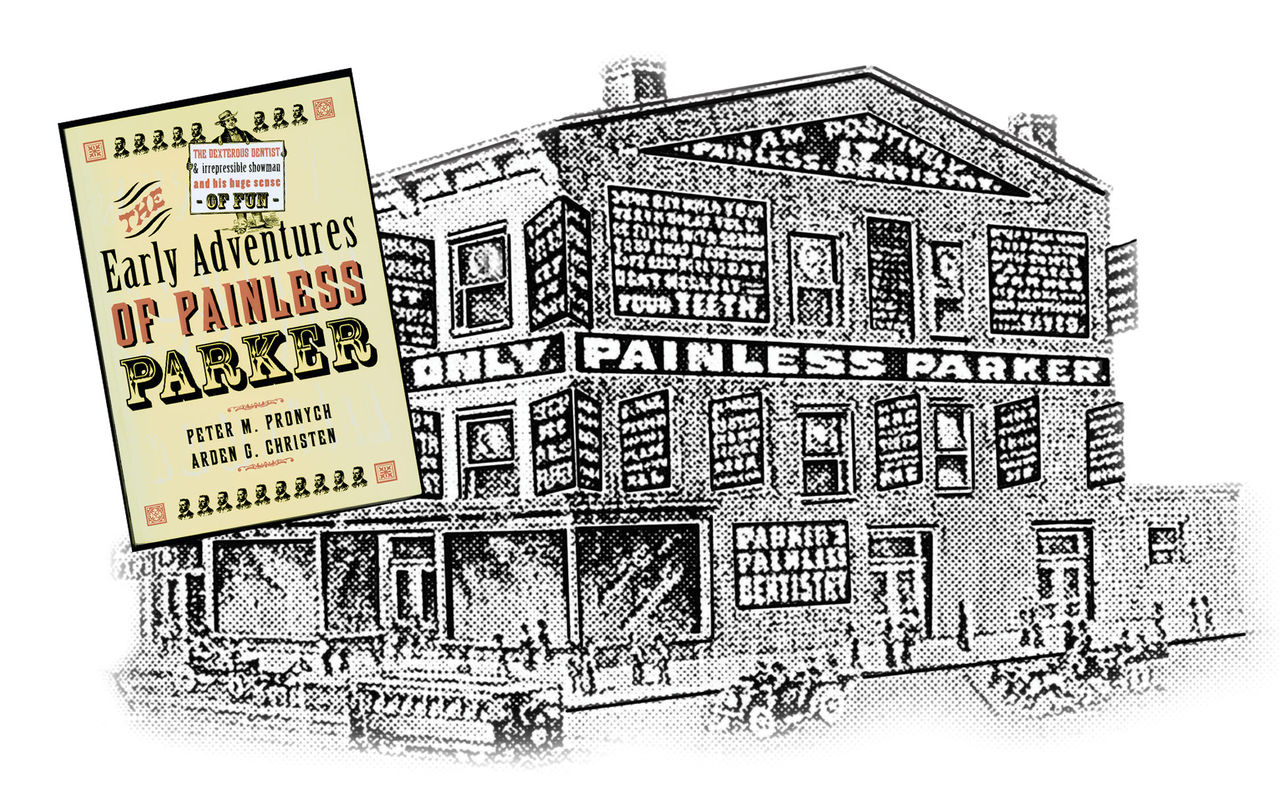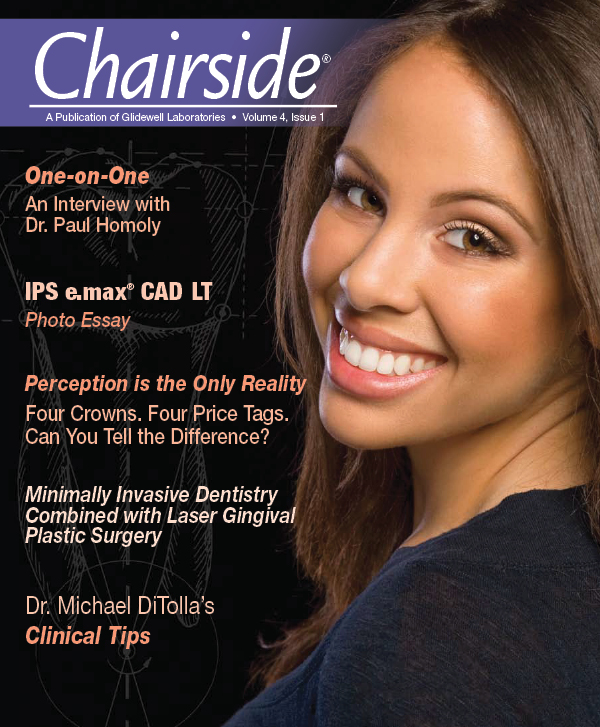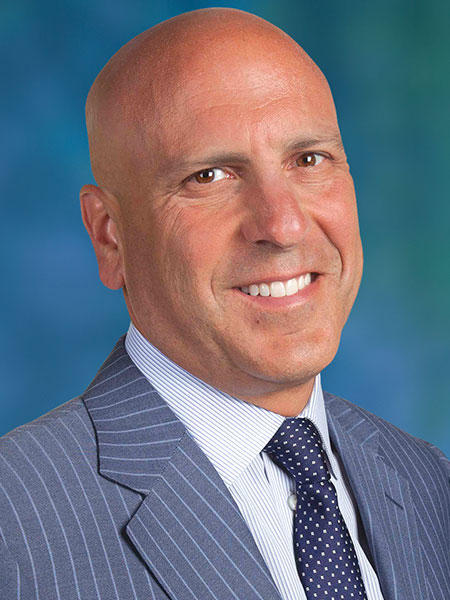Book Review: “The Early Adventures of Painless Parker”

I am a big fan of biographies of successful people from all walks of life. I don’t think I have ever read a biography I haven’t learned something from that I can relate to my pursuit of success. Unfortunately, the opportunities to read a biography of an icon in our industry are few and far between. So when I happened to find one floating around on the internet, I jumped at the chance to read the story of a dentist who, at one point, was more famous than the President.
Early in my career, I remember working on an older woman who was slightly apprehensive about having an extraction. I was able to complete the extraction without her feeling any pain, and at the end of the extraction she said, “Wow, you are a real Painless Parker.” I thanked her for the compliment, but asked her about the expression, as I had never heard it before. She went on to tell me about Painless Parker, a dentist from the turn of the century who was world-renowned for performing painless extractions.
That made no sense at all to me because my dad had been practicing dentistry since the early 1960s, and he told me how unreliable Novocain was then…let alone 60 years before. I forgot all about the offhanded compliment until a couple months ago when another patient mentioned Painless Parker, and my curiosity sent me to the center of all knowledge: Wikipedia. A quick search brought me to his page, and as I read I became more fascinated with the man who had a passion for bringing dentistry to the working class for an affordable price.
I found a book on Painless Parker and, once I picked it up, I could not put it down. I wanted to review it in Chairside® because I knew how many of you would be interested in this fascinating story. Whether you love or hate his tactics, I guarantee you won’t be bored with the trials and tribulations of Painless Parker. Incidentally, when the Dental Board of California told him he could no longer call himself “Painless Parker,” he went to court and legally changed his name from “Edgar” to “Painless.” Awesome! Believe it or not, that is one of the least controversial things he did.
In May of 1892, Parker graduated from Philadelphia Dental College with a Doctor of Dental Surgery degree. His graduating class consisted of four other students. After graduation, he decided to practice in his hometown of St. Martins in New Brunswick, Canada. While he wanted to tell the locals about his skills, he had been taught in dental school that it was unethical to solicit work directly. Parker was taught, however, that it was acceptable to solicit work by joining clubs and to never decline an invitation to be seen at a public place.
Parker had been well-known in his hometown as an adolescent for some of his escapades, and he felt joining his local church might help shore up his reputation and get some patients in the office. When that failed to produce any patients, Parker decided to attend both Sunday services to appear even more pious. He began to sit in the front pew at church and took to carrying a huge Bible with him. Because he had yet to see a patient in his office, he began to volunteer for all of the tasks in the church. Parker also assisted with the services and taught Sunday school — anything to make them think he was an ideal citizen. As Parker put it, “I was determined to be ethical at all costs.” Six weeks after opening his office, he still had not seen a single patient.
Hope finally arrived in the shape of a local sign painter who Parker knew hated his dentures. Parker offered to make him new dentures in exchange for a sign for the practice. The painter wanted Parker to make the dentures first so he could try them, and then he would make the sign. Parker agreed because he was out of money. The painter loved the dentures and, with much appreciation, made a huge new sign with gold paint for Parker’s practice. Parker was somewhat embarrassed by its size, so he instructed the painter to put it up at night so no one would see. The next day Parker expected there to be a line of patients around his office, but it never materialized. In fact, when Parker showed up to work the next day, he found the sign was missing! Later that day, he found it nailed to the train station’s outhouse door, most likely by one of the town’s other dentists. Embarrassed to be seen taking the sign down, Parker once again waited for the cloak of night to remove his sign and replace it at work. His sign attracted one patient in his first 90 days of practice, a tourist who needed an extraction. Parker removed the tooth and charged him one dollar ($21 in the present day, adjusted for inflation). The patient only had 75 cents with him, but Parker was happy to take the money and finally get paid for performing dentistry.
Parker saw fire and brimstone preachers on the street corner converting people with their vivid descriptions of hell, messages that were considered socially acceptable. He just could not believe why it was unethical to preach the importance of taking care of your teeth, and the “hell” that awaited you if you became edentulous.
Armed with an aqueous solution of cocaine he called “hydrocaine,” Parker takes his message to the street corner offering painless extractions for 50 cents. He promised that if the extraction hurt, he would pay the patient five dollars! That first night he extracted 12 teeth and didn’t have to give anyone the five dollars, which he found surprising because he ran out of hydrocaine after the seventh patient!
While I certainly wouldn’t want to follow in Parker’s footsteps, I was drawn into the story of his personal struggles. Parker starts his practice with dignity, but soon finds that dignity won’t pay the bills. Unlike most dentists, he finds he likes being a dentist and a salesman at the same time, and this drives his decision to take the story of preventive dentistry straight to the people.
This is on my required reading list for all dentists, young and old.
One of the authors, Dr. Arden G. Christen, has limited copies of the book available for purchase, although “The Early Adventures of Painless Parker” is technically out of print. Contact Dr. Christen at achriste@iupui.edu to request a copy.



